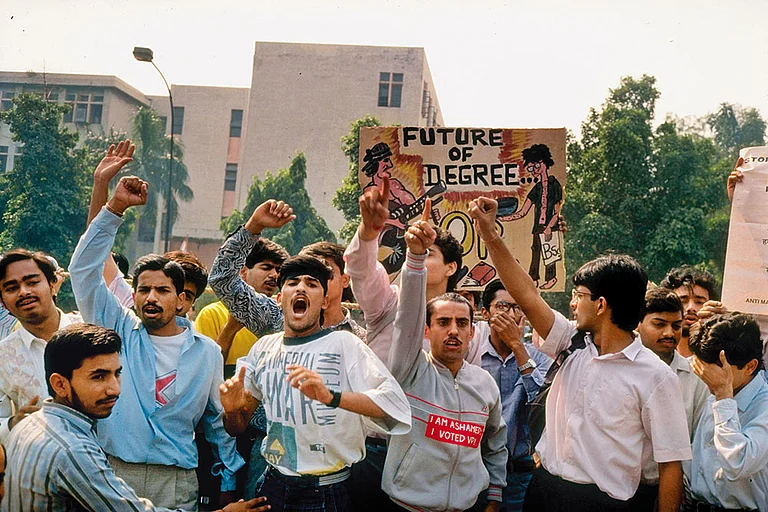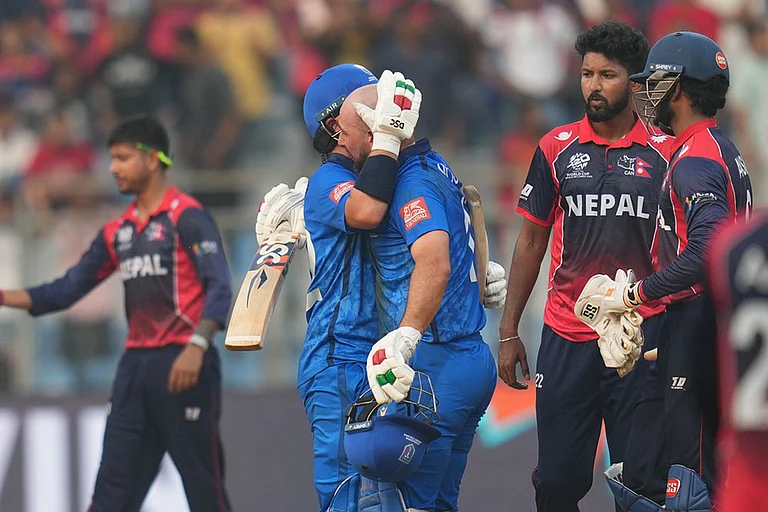Perhaps the most anticipated development of the year 2023 is the formation of a possible anti-BJP coalition. It seems clear that without a grand coalition among various Opposition parties, the Bharatiya Janata Party (BJP) is unlikely to be dislodged in 2024.
But for any sustainable coalition, the Congress must shed its arrogance and become a lot more accommodative to regional parties than it is now. The party’s expected role as a facilitator also depends on the negotiating skills of Rahul Gandhi, the de facto ruler of the Congress despite the election of Mallikarjun Kharge as party president. And thus, the year will also see how Rahul actively engages with politics after Bharat Jodo Yatra. Steering away from active politics, he has tried to assume a philosophical image during the Yatra and spoken loftily about a united opposition, but the real test will be to facilitate an opposition unity.
Rahul should also note that the year 2022 closed with a development that complicated the political possibilities of 2023. If one thought that it was BJP all the way, three different parties shared the results of three crucial elections in December 2022. The Congress dislodged the BJP in Himachal Pradesh and whereas the BJP retained Gujarat, it lost the Municipal Corporation of Delhi (MCD) to Aam Aadmi Party (AAP). With as many as nine states going to polls in 2023, the year forms a perfect stage for the 2024 general elections.
To begin with, three North-eastern states of Meghalaya, Tripura, and Nagaland are going to polls in early 2023. While Tripura has a BJP-led government, the governments in other two states have the BJP as a minor partner. While the Congress once formed the principal Opposition in these states, two new entrants, AAP and Trinamool Congress (TMC), have made the polity multipolar.
In Meghalaya, the TMC, especially after its victory in the 2021 West Bengal polls, has wooed prominent political faces from across the spectrum, with former Congress Chief Minister Mukul Sangma as its leader. Since 12 out of the 17 Congress MLAs have defected to the TMC so far, it is now the principal Opposition party in the Assembly.
On the other hand, the BJP seems to be in a weaker position in Tripura because seven MLAs of the party and its allies have joined other parties. While the BJP was forced to change its Chief Minister Biplab Deb mid-term, the new Chief Minister Manik Saha is still struggling to hold the party together.
In Nagaland, the National Democratic Progressive Party (NDPP) is under flak for its failure to solve the Naga issue. The BJP has so far kept its alliance intact with the NDPP, but it faced a blow in November when some of its leaders joined Nitish Kumar’s Janata Dal (United), which has promised a speedy resolution to the Naga issue.
After Northeast, the next election is in Karnataka where the ruling BJP faces a tough opposition from the Congress. The BJP is not only mired in serious corruption charges, it is also witnessing anti-incumbency over rising communal violence in a state that has become a laboratory of the Sangh Parivar in southern India.
Towards the end of the year, as many as five states will go to polls — Rajasthan, Madhya Pradesh, Chhattisgarh, Telangana, and Mizoram.
In Rajasthan, the ruling Congress is divided into two camps of Ashok Gehlot and Sachin Pilot, with little hope for reconciliation. It gives the BJP a strong chance to come back in a state that has changed its government every five years in the last several elections.
The Congress party stands dented in Madhya Pradesh due to several defections. Bhupesh Baghel looks strong in Chhattisgarh, but a section of bureaucracy, civil society, and media are annoyed with the Congress government. Of late, the BJP has also begun polarising the state that has remained mostly free of communal violence. The inability of the government to contain the violence against neo-covert Christian adivasis in Bastar may weaken the adivasi vote of the Congress.
In Telangana, the BJP is fancying its chances to remove the K Chandrashekhar Rao-led Bharat Rashtra Samiti (formerly Telangana Rashtra Samiti) government.
Two parties that will try to expand its national stamp before 2024 are the AAP and the TMC. In 2022, Arvind Kejriwal’s party got over 12 per cent vote share in Gujarat and won Punjab by a big margin. It has filled the crucial space of a third party in states that see bipolar polity between the Congress and the BJP. If the AAP snatches even a fraction of the Congress’s votes in states like Chhattisgarh, it could seriously impact the poll results.
The electoral calendar of the year ensures that the two principal parties, Congress and the BJP, are contesting each other throughout the year across the country. Together these states account for over 110 Lok Sabha seats and should indicate the mood of the nation before the 2024 polls.
(With inputs from Syeda Ambia Zahan)

























